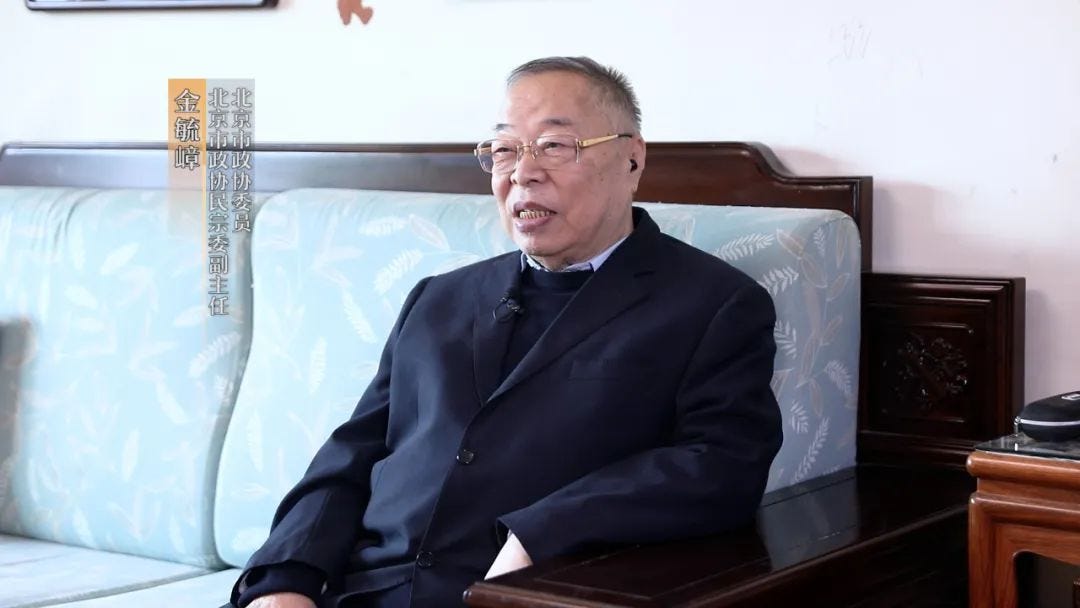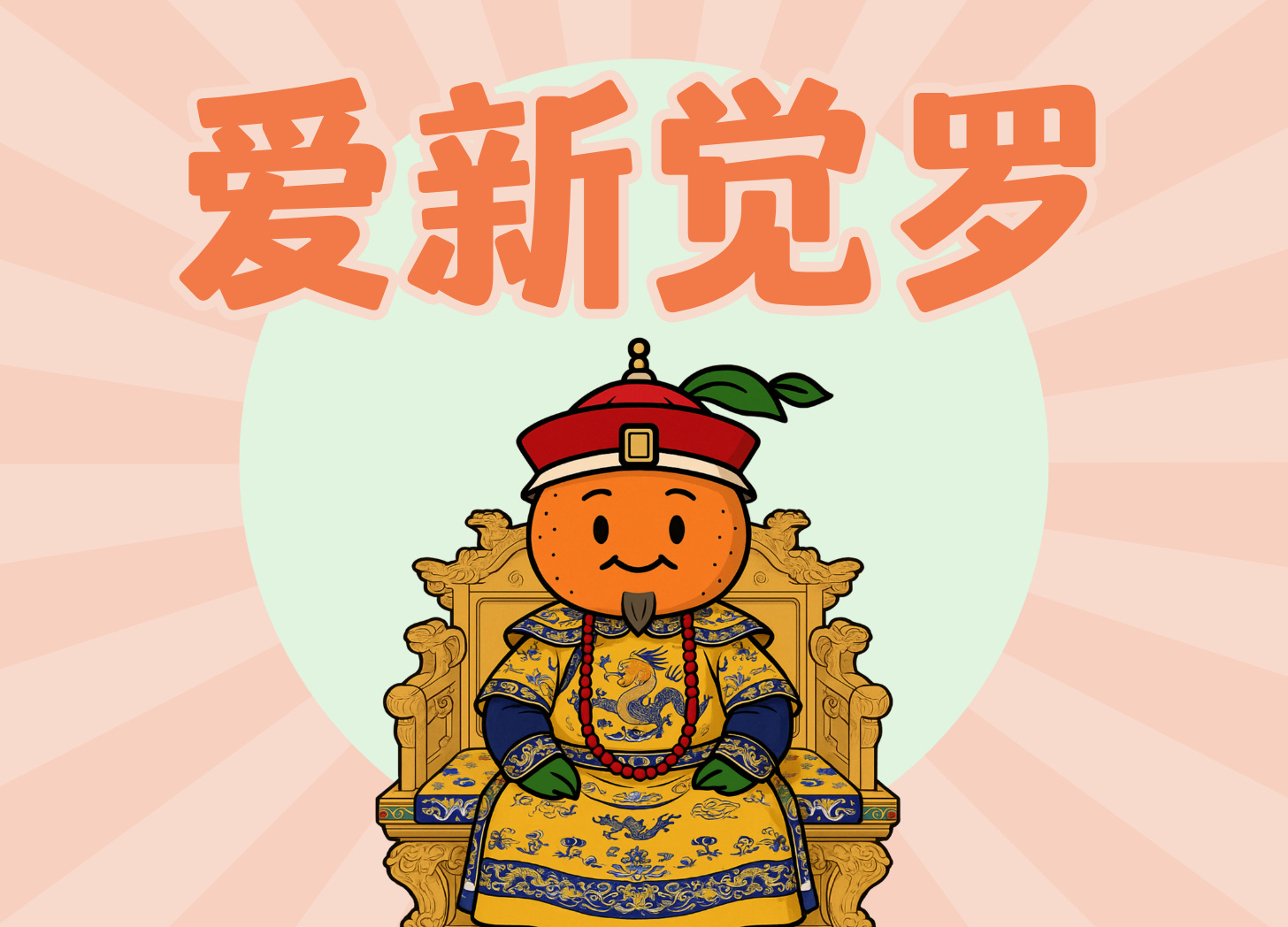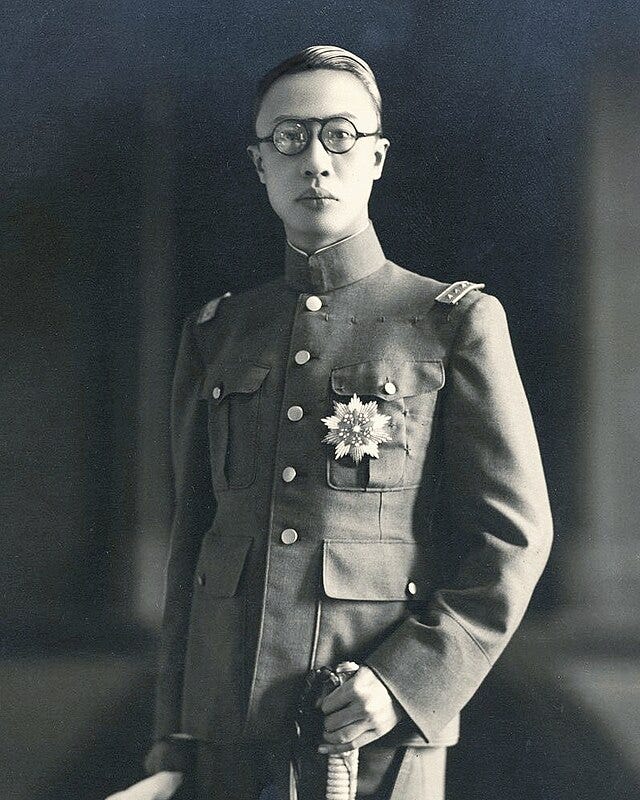China's Last Dynastic Family: Still Thriving in Modern Times?
Get to Know the Aisin Gioro Clan – The Manchu Royals
Have you watched the movie The Last Emperor?
If you haven’t, go watch it—it’s really good! If you have seen it, or if you're somewhat familiar with the transitional period between imperial and republican China, then you probably know that Chinese revolutionaries—both Nationalists and Communists—did not execute members of the Qing dynasty, unlike the Bolsheviks who killed the Tsar and his family.
On the contrary, the Qing royals were treated with a certain degree of respect. Puyi, China’s last emperor, lived a relatively decent life (considering the average quality of life in early communist China) and was even placed under protection during the Cultural Revolution. He passed away at the age of 61 due to kidney cancer. While he had no children, his extended family—known today as the Aisin Gioro Clan—still lives on and thrives!
Most members keep a low profile within China, but they tend to be highly successful individuals. Some attribute this to their strong educational background as members of the former royal family, while others suggest that even in modern Communist China, people still show a quiet reverence once they learn someone descends from imperial lineage.
Let’s dive deeper into their story!
1912年2月12日,清朝末代皇帝爱新觉罗·溥仪颁布退位诏书,标志着中国帝制的终结。14万皇室成员散布海内外,许多爱新觉罗后代担心被报复,因此选择改名换姓,低调生活。
颁布 (bānbù): to issue; to promulgate
退位诏书 (tuìwèi zhàoshū): abdication edict
低调生活 (dīdiào shēnghuó): low-profile life / to live a quiet, modest life
On February 12, 1912, the last emperor of the Qing dynasty, Aisin Gioro Puyi, issued an edict of abdication, marking the end of imperial rule in China. Around 140,000 royal family members were scattered across China and abroad. Many descendants of the Aisin Gioro clan, fearing retaliation, chose to change their names and live low-profile lives.
据香港《星岛网》报道,1924年,溥仪被军阀冯玉祥赶出紫禁城后,搬去父亲载沣家中居住。此后,他经历多次流亡与变迁,最终在辽宁抚顺监狱度过了10年。1959年,溥仪获得特赦,成为普通公民,改名为“溥浩然”,直到1967年因病去世,终年61岁。
军阀 (jūnfá): warlord
紫禁城 (Zǐjìnchéng): the Forbidden City
变迁 (biànqiān): changes; vicissitudes; transition
特赦 (tèshè): special pardon; amnesty
According to Hong Kong's Sing Tao Daily, in 1924, after Puyi was expelled from the Forbidden City by warlord Feng Yuxiang, he moved into the home of his father, Zaifeng. Later, he went through years of exile and displacement, eventually spending 10 years in Fushun Prison in Liaoning Province. In 1959, Puyi was granted a pardon and became an ordinary citizen. He changed his name to Pu Horan and lived under that name until his death from illness in 1967, at the age of 61.
清朝灭亡后,除了溥仪之外,其余14万皇室成员也面临不同命运。一部分人选择改名换姓,远离故乡,寻求新的生活;另一部分爱新觉罗后代则留在原地,但同样为了避免报复,也选择改名换姓、过上低调的生活。
After the fall of the Qing dynasty, the 140,000 other royal family members also faced different fates. Some changed their names and left their hometowns in search of new lives. Others stayed where they were but also changed their names to avoid persecution and lived quietly.
他们当中大多数人改姓“金”,这是因为在满语中,“爱新觉罗”的意思就是“金”,而且努尔哈赤开国之初也以“金”为国名。其中最为人熟知的就是被称为“汉奸”的川岛芳子,她原本姓爱新觉罗,汉名金璧辉,是肃亲王的嫡系后代,原名为爱新觉罗·显玗。另外还有改姓艾、骆、赵等。
努尔哈赤 (Nǔ'ěrhāchì): Nurhaci (founder of the Later Jin dynasty, precursor to the Qing dynasty)
汉奸 (hànjiān): traitor to the Han people; Chinese collaborator (often used pejoratively for someone who betrays China to foreign powers)
Most of them changed their surname to “Jin”, because in the Manchu language, “Aisin Gioro” means “gold”, and the Qing founding ancestor Nurhaci originally used "Jin" as the name of his state. The most well-known example is probably the so-called "traitor" Yoshiko Kawashima. She was born Aisin Gioro Xianyu, later took the Han name Jin Bihui, and was a direct descendant of Prince Su. Others changed their surnames to Ai, Luo, Zhao, and so on.
至于象征最高荣誉的“满清八大姓”也都改成了汉姓,例如瓜尔佳氏改为“关”或“郭”,知名艺人关晓彤和关之琳都出自瓜尔佳氏;其他如佟佳氏改为佟,马佳氏改为马,索绰罗氏改为索,赫舍里氏改为赫,富察氏改为富,那拉氏改为那,钮祜禄氏改为郎等。
高荣誉 (gāo róngyù): high honor; great distinction
As for the “Eight Great Manchu Surnames”, once seen as symbols of noble status, they were also Han-ized. For example, the Guwalgiya (瓜尔佳) clan became Guan or Guo. Famous celebrities like Guan Xiaotong and Rosamund Kwan (Guan Zhilin) are from this clan. Other surname changes include:
Tongjia (佟佳) → Tong (佟)
Maja (马佳) → Ma (马)
Suochuoluo (索绰罗) → Suo (索)
Hesheli (赫舍里) → He (赫)
Fucha (富察) → Fu (富)
Nara (那拉) → Na (那)
Niohuru (钮祜禄) → Lang (郎)
爱新觉罗氏中大多数人并不擅长体力劳动,但在文化、艺术等领域不乏杰出人士。例如著名书法家、教育家启功,他原名爱新觉罗·启功,改姓启、名功。他其实是满清贵族、爱新觉罗一脉,是雍正皇帝的九世孙,高祖父是乾隆皇帝的亲兄弟。
擅长 (shàncháng): to be good at; to excel in
不乏 (bù fá): there is no lack of; there is no shortage of
杰出人士 (jiéchū rénshì): outstanding individuals; distinguished figures
一脉 (yīmài): one bloodline; a single lineage or branch (often used to emphasize direct descent)
Most members of the Aisin Gioro clan were not skilled in manual labor, but many excelled in culture and the arts. One prominent example is the famous calligrapher and educator Qi Gong. He was actually from the Aisin Gioro family—his full name was Aisin Gioro Qigong. He was the ninth-generation descendant of Emperor Yongzheng, and his great-grandfather was the biological brother of Emperor Qianlong.

如今的爱新觉罗氏大约有40万人,生活在国外的多为曾有权势的家族后代,而普通人则多分布在北京、东北、河北一带。在中国东北,还有一个村庄,所有家庭都是皇族后代,全都姓“爱新觉罗”。村子里的每家每户都保留着清朝皇室的风俗,穿旗袍、扎长辫,家中挂着清朝帝王的画像,每逢节日都会祭祖。这个村庄最重视的就是满族的纯血传承,为了保持纯正血统,村里的满族人必须与满族人通婚。
有权势 (yǒu quánshì): powerful; influential
旗袍 (qípáo): qipao; traditional Chinese dress for women
扎长辫 (zhā chángbiàn): to wear long braids
祭祖 (jìzǔ): to worship ancestors; ancestral rites
纯血 (chúnxuè): pure bloodline; pure ancestry
Today, the Aisin Gioro clan is estimated to number around 400,000 people. Those living abroad tend to be from once-powerful family branches, while ordinary descendants are mostly concentrated in Beijing, the northeast of China, and Hebei Province.
In fact, in one village in northeastern China, every household is descended from the Qing royal family, and they all carry the surname Aisin Gioro. The families in this village still preserve Qing court customs: wearing qipao, keeping long braids, hanging portraits of Qing emperors in their homes, and worshipping ancestors during traditional festivals. What they value most is the purity of Manchu bloodline, and to maintain it, villagers only marry other Manchu people.
What do you think about former royal families? Do you think they deserve respect, or should they be treated the way the Russians or the French did?
Thank you for reading Mandarin Zest. We love to read Chinese with you and want to continue in the future. Please consider pledging to help us write the weekly posts and more! Any pledge, montly or yearly, would be very helpful. 谢谢
Antoine & Dorota








Peek at the Grand Council Court. throne in thumbnail from the old summer palace, 1860 Oct looting. A 44th Regiment of foot British soldier family purchased the entire set, July 12, 1870 auction of nobility . I was gifted one from for rescue from fire the Matriarch and collection. YongZheng Kangxi Qainlong and others used YES, THIS ONE IS AVAILABLE FOR ACQUISITION.